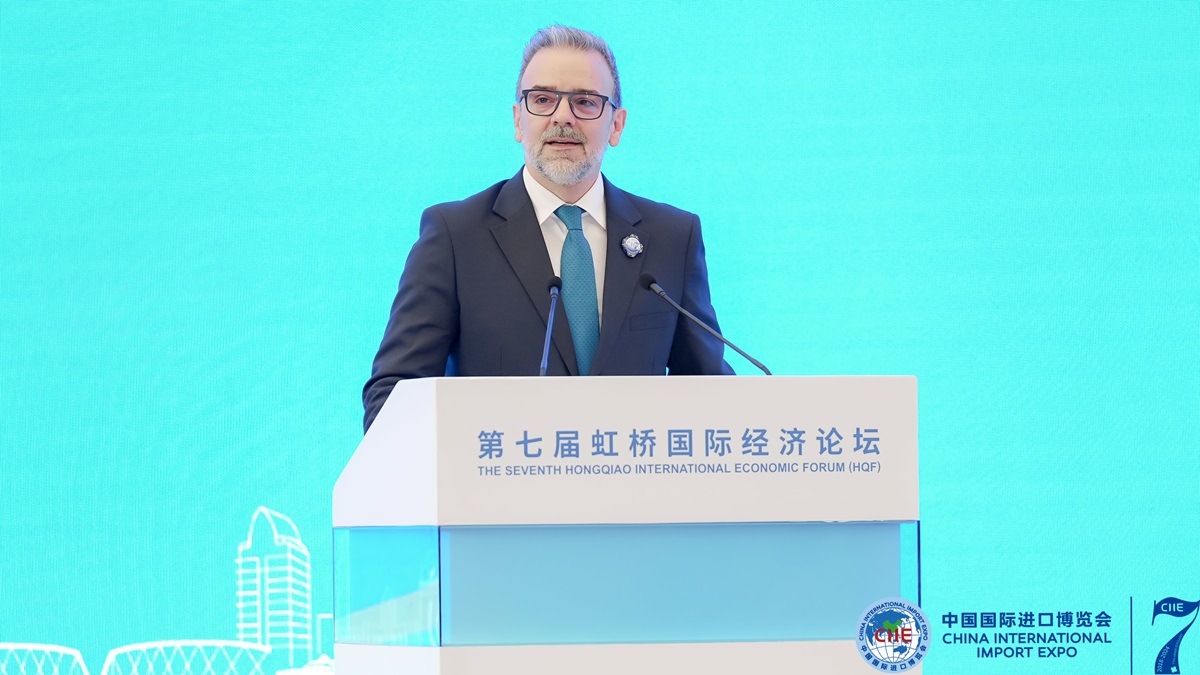New opportunities abound despite the global economic slowdown. But strategic policy shifts are necessary to turn them into development gains.
© China International Import Expo | Deputy Secretary-General Pedro Manuel Moreno on an official visit to Shanghai, China, on 5 November.
Developing countries, while growing in importance on the world stage, still need more voice and new development strategies to enhance their growth momentum.
That’s the message from UN Trade and Development (UNCTAD) Deputy Secretary-General Pedro Manuel Moreno, when addressing an event entitled “Sustainable development of the Global South and China-Africa cooperation”.
The event, held on 5 November in Shanghai, China, is part of the 7th Hongqiao International Economic Forum and China International Import Expo, to which UNCTAD is a global partner.
Over the past 60 years, the Global South has come a long way. As of 2023, it accounted for 42% of world GDP, 44% of merchandise exports and 65% of foreign direct investment inflows.
Rethinking development to tackle low growth, seize new opportunities
Global growth is facing a “low normal”, as UNCTAD underscores in its latest Trade and Development Report, projecting the world economy to grow at just 2.7% for 2024 and 2025.
Deceleration is more acute for developing economies, which grew at 6.6% between 2003 and 2013, but only averaged at 4.1% in the following decade.
But even in a sluggish economy, vast possibilities remain for the Global South – be it the dawn of a service economy, the expansion of South-South trade or soaring demand for critical minerals essential to the energy transition.
To help developing countries re-strategize development amid a global slowdown, UN Trade and Development spotlights the need to prioritize economic resilience and diversification, moving beyond manufacturing-led export models.
It also calls for stronger multilateral action to improve tax cooperation, ensure an equitable energy transition and build a development-focused global financial system.
“We have always emphasized that the development challenge is as much an international as a domestic issue, and that global economic governance needs to better reflect developmental aspirations,” Deputy Secretary-General Moreno concluded.

